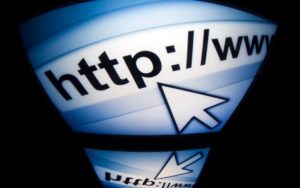Under the guise of national security, Congress is looking to expand surveillance powers of the FBI; this time they are coming for your browser history.

This legislation opened the door for federal authorities to investigate American citizens suspected of violating a vaguely described idea of “national security.”
It’s been controversial legislation from the start, and that’s putting it mildly.
But the situation has just gotten worse if you’re a U.S. citizen concerned about your privacy. A recent article on Motherboard described a Senate vote for a reauthorization of a part of the Patriot Act that could allow the FBI to view your browser history without a warrant:
The vote comes at a time when internet usage has skyrocketed, with tens of millions of Americans quarantined at home during the COVID-19 pandemic. Privacy advocates have warned for over a decade that allowing warrantless access to web search queries and browsing history allows law enforcement to easily crack down on activists, labor organizers, or anyone else the government deems a threat.
The 4th Amendment to The U.S. Constitution is supposed to protect you from warrantless search and seizure, including your Internet usage.
But with the Senate vote, that protection is in jeopardy. If the House passes this form of the Patriot Act, the FBI would be able to peek at your browsing history whenever it wanted to… and you might never even know it.
Fortunately, it’s not a “done deal” yet, and according to another VICE piece, “activists are trying to push Democrats to add the privacy protections back into the bill when it returns to the House this week.” But if the protections aren’t added back in, your online private life is in jeopardy. Talk about walking up to a thin line.
“Search and web browsing history provide a window into some of the most sensitive aspects of our lives—revealing everything from political views to potential medical conditions,” said Neema Singh Guliani, a senior legislative counsel for the ACLU.
Not only that, but any “crack in the door” the Feds have to gather information about you can be combined with other data to form a more complete profile on your activities. And this information can then be connected to who you associate with — potentially providing the FBI with more “victims.”
What could go wrong with that? Everything…
One example would be the shroud of mystery that surrounds the data being collected, namely a “number of ‘unique identifiers’ collected by federal agencies under Section 215 of the PATRIOT Act, which allows for domestic mass-surveillance.”
If you don’t even know exactly what the Feds are collecting, or how they are collecting it, how can you thoughtfully defend yourself?
The truth is, you shouldn’t have to worry about this if you’re a law-abiding U.S. citizen. But unfortunately you might have to pay more attention now that the Government is trying to take away your basic privacy rights.
So consider this a reminder to delete your browser history. And consider alternative browsers that aren’t known for violating privacy.
The best offense in this case may be a rock-solid defense…
How to Remove Yourself from Public Databases
It should be clear from the above that your browser and other private Internet data can be used to track your exact location, eating habits, spending habits, your income, your online habits, and many other parts of your private life.
With just a few clicks, a phone call, and a few dollars almost everything a Government agency like the IRS wants to find out about you can quickly be put together into a complete file.
That’s why I want to tell you about our popular “Go Off the Grid” report, which is your blueprint for living a truly private life.
You will discover:
- How to get your name out of public databases.
- How to make your physical and digital assets invisible to prying eyes.
- Ensure your vehicle ownership is 100% untraceable.
- How to make your wealth completely anonymous.
- How to protect yourself online.
But that’s not all, inside the report you’ll also find the following gems…
- DO THIS NOW: The one thing almost no one does to properly hide their home address, and it has nothing to do with getting a PO Box. (page 4).
- The “privacy veil” you can set up with a few clicks that renders you practically anonymous — and helps you slash your taxes. (page 24)
- Secure your phone number and your calls from snoops and credit agencies in minutes with this “Smart” blueprint. (page 13)
- The secret “shield” that makes your home, car, and other assets practically lien proof. You’ll be able to “set it once and forget it.” (page 16)
- The digital “Ghost” that can protect you online, make your digital footprints disappear, and even save you money on airplane tickets. (page 19)
- And more… including how to legally remove yourself from the banking system.
If you are serious about protecting your privacy from irresponsible companies, the Government, and other snoops, then you don’t want to miss this valuable report…
==> Click here to get your copy now
To living privately,
Bobby Casey
Location Independent Entrepreneur
P.S. Don’t wait for the U.S. House of Representatives to figure things out, because if you do nothing your privacy could all but disappear. So you need to read my report before it’s too late…
Inside you’ll discover how to go completely “off the grid,” without having to move out to a cabin in Montana. In fact, you won’t even have to leave your couch.

